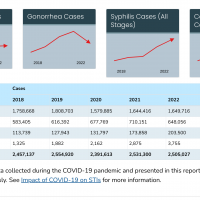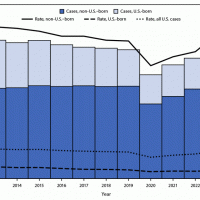Butantan-DV Dengue Vaccine
Butantan-DV Dengue Vaccine Clinical Trials, Dosage, Indication, News, Side Effects
Butantan Institute's tetravalent, live attenuated, single-dose Butantan-DV Dengue Vaccine conducts phase 3 clinical trials. The attenuated dengue vaccine results from a partnership between Butantan, the U.S. National Institutes of Health (NIH), and the American Type Culture Archive (ATCC). Development of the tetravalent dengue vaccine began at Butantan Institute in 2010 with FAPESP's support, using a formulation created by researchers affiliated with the NIH.
Butantan-DV is a cocktail of four live-attenuated dengue viruses (DENVs). Three dengue serotypes are near full-length DENV genomes, whereas only one component (DENV-2) is a chimeric vaccine virus. This chimeric virus contains two structural genes of DENV-2 on the same attenuated DENV-4 genetic background as the DENV-4 component of the vaccine. Consequently, Butantan-DV contains more homologous immunogenic dengue proteins for each serotype in the cocktail (including non-structural proteins for three of the four serotypes) than the other two highly chimeric vaccines.
Human phase 1 clinical trials in Brazil started in 2013, with the support of the Butantan Foundation and Brazil's national development bank, BNDES. The ongoing Phase 3 clinical trial results showed in an article published by The Lancet on August 5, 2024, that the vaccine is safe and 79.6% effective for all age groups between 2 and 59 and people with or without a prior history of infection by the dengue virus. A phase 3 study funded by Instituto Butantan and others published an Original Article in the NEJM that found a single dose of Butantan-DV prevented symptomatic DENV-1 and DENV-2, regardless of dengue serostatus at baseline, through 2 years of follow-up. As of February 15, 2024, the Phase III Trial to Evaluate Efficacy and Safety of a Tetravalent Dengue Vaccine was updated. Results from phase 3 of the clinical trial published in The Lancet Infectious Diseases in November 2024 showed 89% protection against severe dengue and dengue with warning signs and prolonged efficacy and safety for up to five years.
As of February 2025, Butantan has been discussing with the Ministry of Health how to incorporate the vaccine and a delivery schedule. "In 2025, we are working on the final stages of adjusting the processes and producing the initial batches, expecting to deliver 1 million doses, representing 1 million vaccinated people. In 2026, we would scale up and deliver another 60 million doses. In 2027, another 40 million doses, to achieve the vaccination curve for the Brazilian population," explained Esper Kallás in a media statement on February 19, 2025.
Instituto Butantan is the leading producer of immunobiologicals (vaccines) in Brazil.
Butantan-DV Dengue Vaccine Availability 2025
On December 16, 2024, the Company submitted for Butantan-DV approval in Brazil. In January 2025, the Butantan Institute submitted a report to Brazil's health surveillance agency (ANVISA), applying for the vaccine's registration in Brazil. ANVISA does not prohibit the production of vaccines before the licensor. If approved in 2025, Butantan-DV will be the world's first single-dose vaccine against dengue. The Institute plans to produce around 1 million doses in 2025, mainly for Brazil's Ministry of Health via the national vaccination program, and 100 million more doses by the end of 2027.
Butantan-DV Dengue Vaccine Dosage
Butantan-DV Dengue Vaccine is a single dose administration.
Butantan-DV Dengue Vaccine Indication
Butantan-DV Dengue Vaccine offers people protection against four types of the dengue virus.
Butantan-DV Dengue Vaccine Side Effects
In a phase 3 study, solicited systemic vaccine- or placebo-related adverse events within 21 days after injection were more common with Butantan-DV than with placebo (58.3% of participants vs. 45.6%).
Butantan-DV Dengue Vaccine News
February 19, 2025 - “We are providing the Butantan Institute with all the necessary infrastructure to ensure that we can produce the vaccine properly, as we are again experiencing a dengue epidemic. There is only one way to end dengue in our country, and that is to be able to put the vaccine in the arms of all Brazilians. In this sense, we have the full commitment of Butantan, the government, and the secretariat to focus on this,” said Eleuses.
December 16, 2024 - The fact that the Butantan Institute can contribute to the world's first single-dose vaccine against dengue shows that it is worth investing in Brazil's research and the internal development of immunobiologicals. We will wait and respect all the procedures of Anvisa, an agency of the highest competence. But we are confident in the results that will come," says Esper Kallás, director of the Butantan Institute.
August 5, 2024 - A Commentary published by The Lancet Infectious Disease highlighted the Butantan-DV vaccine's potential.
February 1, 2024 - The New England Journal of Medicine published Phase 3 clinical trial data. The dengue vaccine is safe for participants who have had dengue and those who have never been exposed to the virus before. "Findings from Phase 2 [the previous clinical trial] showed that the four attenuated viral serotypes in Butantan-DV multiply in the human organism and induce a balanced response in terms of antibody production. This leads us to conclude that its efficacy against DENV-3 and DENV-4 will also be good," said virologist Maurício Lacerda Nogueira.
December 16, 2022—The Butantan-DV dengue vaccine, under development by the Butantan Institute, is 79.6% effective in preventing the disease, according to initial phase 3 clinical study results. During the two-year follow-up of the volunteers, there were no cases of severe dengue fever or alarm signs.
Butantan-DV Dengue Vaccine Clinical Trials
ClinicalTrials.gov ID NCT02406729 - Phase III, Double-Blind, Randomized, Placebo-Controlled Trial to Evaluate the Efficacy, Safety, and Immunogenicity of the Dengue 1, 2, 3, 4 (Attenuated) Vaccine From Instituto Butantan. This randomized, multicenter, double-masked, placebo-controlled Phase III study will evaluate the efficacy and safety of a live attenuated, tetravalent, lyophilized dengue vaccine produced by the Butantan Institute. Over a 3-year enrollment period, 16,235 participants received either Butantan-DV (10,259 participants) or a placebo (5976 participants). The overall 2-year vaccine efficacy was 79.6% (95% confidence interval [CI], 70.0 to 86.3) — 73.6% (95% CI, 57.6 to 83.7) among participants with no evidence of previous dengue exposure and 89.2% (95% CI, 77.6 to 95.6) among those with a history of exposure. Vaccine efficacy was 80.1% (95% CI, 66.0 to 88.4) among participants 2 to 6 years of age, 77.8% (95% CI, 55.6 to 89.6) among those 7 to 17 years of age, and 90.0% (95% CI, 68.2 to 97.5) among those 18 to 59 years of age. Efficacy against DENV-1 was 89.5% (95% CI, 78.7 to 95.0), and against DENV-2 was 69.6% (95% CI, 50.8 to 81.5). DENV-3 and DENV-4 were not detected during the follow-up period.
ClinicalTrials.gov ID NCT01696422 - This is a phase II, step-wise, randomized, multicenter, double-masked, and controlled clinical trial to evaluate the safety and immunogenicity of an attenuated tetravalent lyophilized dengue vaccine manufactured by Butantan Institute. Between Nov 5, 2013, and Sept 21, 2015, 300 individuals were enrolled and randomly assigned: 155 (52%) DENV-naive participants and 145 (48%) DENV-exposed participants. Of the 155 DENV-naive participants, 97 (63%) received Butantan-DV, 17 (11%) received TV003, and 41 (27%) received a placebo. Of the 145 DENV-exposed participants, 113 (78%) received Butantan-DV, three (2%) received TV003, and 29 (20%) received a placebo. Butantan-DV and TV003 were immunogenic and well-tolerated; no severe adverse reactions were observed. In step A, rash was the most frequent adverse event (16 [845] of 19 participants in the Butantan-DV group and 13 [76%] of 17 participants in the TV003 group). Viraemia was similar between the Butantan-DV and TV003 groups. Of the 85 DENV-naive participants in the Butantan-DV group who attended all visits for sample collection for seroconversion analysis and thus were included in the per-protocol analysis population, 74 (87%) achieved seroconversion to DENV-1, 78 (92%) to DENV-2, 65 (76%) to DENV-3, and 76 (89%) to DENV-4. Of the 101 DENV-exposed participants in the Butantan-DV group who attended all visits for sample collection for seroconversion analysis, 82 (81%) achieved seroconversion to DENV-1, 79 (78%) to DENV-2, 83 (82%) to DENV-3, and 78 (77%) to DENV-4.








